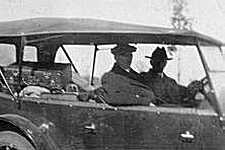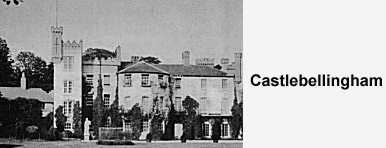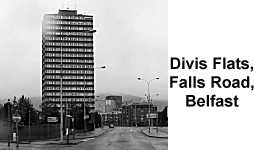There was laughter in the car. The vehicle sped up the main road from Dublin to Belfast. And there was laughter in the car. They were on a mission. Pat and Mick. Yes, Pat and Mick, even though it sounds like the start of a thousand crude music-hall jokes. They had an appointment in Belfast. Pat was the literary dreamer from the far West of Ireland. Mick was third-generation English-born Irish, catapulted back from the land of his birth to the land of his worthless grandfather. Unlike many using the road, Pat and Mick were well educated, the one young and still a university student, the other older and already with two degrees under his belt. Pat was fluent in Irish and English, Mick in English and French, the latter thanks to a long period spent in mainland Europe where he had experienced close at hand the terror tactics of the OAS in Paris in the sixties. Neither was a member of any political party; both were nonetheless deeply engaged in politics – the war in Vietnam, the troubles in Northern Ireland.

Pat, garrulous Pat with an infinite store of literary anecdotes and quotes, an infinite store of tales about real situations – Pat babbled on and punctuated his stories with muffled giggles at his own creativity. Mick, somewhat quieter but also quite capable of shooting his mouth off, preserved silence on this occasion. Pat was in his own country, had an Irish accent and a common name. Mick was in foreign territory, perhaps enemy territory, had a pronounced English accent and a suspect name, a name from the past that haunted many a nervous man in this land. The car was Mick’s, skilfully shuttled at regular intervals between England and Ireland for the last couple of years so that he would not have to pay tax on the vehicle. It was untraceable in Ireland, as he had discovered when, after exceeding the speed limit out in the country one day he had been stopped by a hidden police patrol car. he was allowed to continue on his way unpunished because, as one of the officers had said with a laugh, ‘How will we trace your vehicle by post and impose a fine?’
Mick was not rich. But his car was somewhat unique and eminently identifiable. An accident of fate had caused him to acquire it a couple of years before and he had held on to it, reckoning that it would come in useful one day. It had proved its worth in Ireland, as he criss-crossed the country doing voluntary work for the national student organisation he worked for. But it was easily recognisable, even by someone who knew nothing about cars: a royal blue Volkswagen Variant estate car, which had been unique even in his huge home city of Manchester. Mick laughed quietly at the right moments as Pat gabbled on. But Mick was worried about his car. Had been for a long time while the mission was being planned. He had come to a decision. Entering Belfast in this car would be simply crying out for trouble. So he would drive from Dublin to Dundalk (‘cowboy town’). The car would be dropped as unobtrusively as possible in a pub car park there. Not a public car park. Pub car parks were usually around the back, hidden from the road. If he put it far enough back, maybe under some trees, it wouldn’t be noticed for the brief period they would be in Belfast. One problem: which pub car park? After that it would be easy: bus or train to Belfast station and then sort it out from there.

They passed through Castlebellingham, reminding Mick of adventures of long ago and of recent date. Dundalk loomed up. Where to drop the car? No planning, just instinct: Mick spotted a large pub and guessed it would have a large parking space, or at least an empty area, round the back. He was right, and the sweat slowly dried off his forehead. Behind the pub was an open space covered with cinders, with a curve in it. The pub was closed so the space was empty. Mick guided the car round to the back of the curve, where the vehicle would be hidden from road and pub by intervening bushes. The noise of the tyres on the cinders should have wakened the dead and the VW’s engine was not the quietest on the road, but he hoped that neither publican nor local inhabitants would be alerted. Pat was ready to leap out of the car. Mick shushed him and looked in his side and rear-view mirrors. Nothing moved outside. Mick forced Pat to sit still for five minutes while trying to work out the next move. He knew how to get back to the main road and that they should turn left to make for Dundalk. Otherwise he was stumped.
‘Pat’, he said, in an urgent whisper, ‘we are going to get out of this car as quietly as possible. I’ll open and close the doors. You get your duffel bag and make your way over there to those bushes.’ He pointed.
For once Pat obeyed without question. Mick’s anxiety had got through to him. He opened the passenger door as quietly as possible, left it open, drew aside the rear door that Mick had already opened quietly from inside the car, withdrew his duffel bag from the back seat and made his way as noiselessly as his 160 pound body weight would allow him over a short stretch of cinders to the sheltering bushes. His passage made some rather loud crunching noises. God! thought Mick, why does he have to wear those hulking great hiking boots?
Mick emerged from the car, picked up his small rucksack from the back seat and proceeded to close all the car doors. Not with a slam, but with a quiet push of his hands till he heard a click and then with a swift blow from his backside to ensure that the doors were locked. Weighing 140 pounds and wearing crepe-soled desert boots he made his relatively quiet way to Pat who was not exactly huddled against the protective bushes.
‘OK’, he said in a whisper. ‘Unless you have any better ideas, we make our way as quietly as possible to the main road. We don’t talk. We act nonchalant as if we’d just rambled in from the surrounding countryside. At the main road we turn left, towards Dundalk, and if a car passes we try to hitch a lift. We don’t need the lift but it will identify us as no more than a pair of hitch-hikers.’
Pat nodded and they set out. In fact, very few vehicles passed and they were close to Dundalk town centre. At the railway station they bought one-way tickets for Belfast and were there within the hour.
Neither of them knew Belfast but they had imprinted on their minds the name of the road they had to find and knew that it was to the north of the Falls Road, a Catholic/IRA neighbourhood.
The train dropped them more or less in the city centre and it was left to Mick (Pat was still dreaming about Norman Mailer and Nixon) to find directions. They found the vital heart of Belfast. Unfortunately it seemed as if all the road signs were missing. They had no way of knowing which direction they should take.
They had wandered around for quite some time when a very tall, young, British soldier appeared out of nowhere and confronted them, barring their path. Mick guessed he was part of a security patrol and that the rest of the men were hidden, with guns at the ready. The young man’s machine gun was lowered to pavement level but his head towered above Pat and Mick.
‘Excuse me, gentlemen’, he said, with a strong Somerset burr, ‘would you mind opening your bags so that I can see what you’re carrying?’

Pat protested immediately that he was in his own country and didn’t need to prove anything and anyway what was a British soldier doing… He tailed off, still blustering, his eyes flashing from behind his thick glasses. Mick nudged him and whispered in a tone he hoped the soldier would neither hear nor recognise as an English accent: ‘Pat, open your duffel bag. It can’t do any harm.’
Pat continued to be obstreperous and the muzzle of the soldier’s weapon slowly rose from pavement level to about the level of Pat’s belly button. Pat opened his duffel bag and the gun muzzle poked around briefly in his weekend change of clothes.
‘And yours, sir’, said the soldier to Mick.
Mick complied immediately, and the muzzle of the weapon disturbed the upper layer of his clean underclothes. Then the soldier gestured in an arc, to his right and behind him, with his gun. ‘Thank you, gentlemen.’ Again the soft Somerset burr. They were dismissed. Let free. And he was gone.
As they walked on, this time in silence, Mick inwardly cursed Pat’s intransigence. He could get them into trouble. But meanwhile Mick had had the opportunity of surveying their surroundings. He was desperately trying to orientate himself, not wishing to stand out too much by consulting a street map. Which was why he hadn’t brought one with him. He’d done his best back in Dublin to memorise the map of Belfast but it was his first visit to the city and the lack of signposts – either vandalised or removed by the security forces in an attempt to foil terrorist getaways – made the task almost impossible. By now they were a short way out of the city centre and Mick thought he recognised, from newspaper photos and TV images, a block of flats that could serve as a landmark. The notorious Divis Flats. Weren’t they at the bottom of the Falls Road? And their destination was at the top of the Falls, near a park known locally as the Black Mountain. ‘Back of there’, he said to Pat, and they made their way behind the flats to find themselves on a broad thoroughfare. The Falls.

They made their way to a bus stop, put their meagre baggage on the ground and waited patiently. There were few passers-by, but those that were looked at them curiously. Nobody greeted them. It was Pat’s habit always to have a book with him to read at times when little was happening. He’d even been known to carry a book in the back pocket of his shorts when he was keeping goal: whenever the ball crossed the centre line in the direction of the opponents’ goal, out would come the book and Pat would be off reading again. Now his nose was stuck into the book he had brought with him (Norman Mailer today) and he noticed nothing. But Mick began to feel uncomfortable. Were they so obviously out of place here? Did they stick out like a sore thumb? They remained the only ones waiting at the stop – which Mick also found curious – for about fifteen minutes. Then a passing woman glanced at them, almost walked on but turned as she passed by.
‘Youse boys had better take a taxi. There’s no buses along here any more.’ Taxi? They couldn’t afford a taxi. ‘Fixed rate’, explained the woman. ‘A shillin’ each and it’ll take you anywhere. It’s not quick but it’s safe.’ She walked on. Some minutes later Mick saw a London-type taxi approaching and flagged it down. ‘Where to, lads?’ asked the driver. Mick gave the address. ‘I can drop you off on the corner’ said the driver. ‘That two shillin’s please.’ There were already three women, two with small children on their lap, sitting in the taxi. It was a bit of a squeeze but they managed. There was little conversation, the only sound being the crackle of the driver’s radio and the occasional incomprehensible message coming through.
The route the taxi was taking was anything but straightforward. Detour after detour, sometimes along narrow one-way streets. Mick was glad the fare was fixed at a shilling.
One by one the women were dropped off at their destinations. The taxi started up to deliver its last passengers, found the Falls Road again and this time drove as straight as an arrow. Suddenly it stopped. The driver turned round and said: ‘Sorry, lads, but I’ll have to take the long way round. The radio’s just reported some shooting ahead. But we’ll get you there, never you worry.’
Detour after detour after detour. Then they were in a relatively respectable looking suburb, with semi-detached houses and neat gardens. The taxi stopped. ‘Here you are, lads’, announced the driver. Almost there, thought Mick. This is the right road. He’d forgotten the house number but knew it was somewhere in the thirties. They could always knock at a door and ask where the McCanns lived. They were opposite number 21 and Mick was thinking they should maybe ask directions when rifle shots started ringing out. Bullets whizzed down the length of the road like demented wasps. The two men bolted, Mick to the left and Pat to the right – anywhere to get out of the way of flying death. Mick landed in someone’s rose bed and lay there paralysed with fear and unmoving despite being scratched all over. Who the hell was targeting them? And why? Was it dangerous just to be an unrecognised stranger here? And, he thought, surely most of the shooting is confined to centre of the city. We’re a good mile-and-a-half away.
He lay there shaking for probably thirty seconds until the shooting stopped and calm returned to his head. He had no idea where Pat was, no idea if he had been hit or not. All was silent in the suburban road. He waited another few minutes. Still nothing stirred. No more bullets sped down the road.
Slowly he extricated himself from the rose bushes, checked to see that he’d not done too much visible damage, brushed himself down and made his way across the neat lawn to the front door of number 21. It was like wakening from a nightmare. A few minutes ago someone had been shooting at him. Now his feet passed over closely cropped turf and the herbaceous borders smiled at him.
The door was opened by a woman of about his own age, wearing an apron and a kerchief round her head, vacuum cleaner in hand. ‘Could you tell me where Eamonn McCann lives?’ he asked in a slightly shaky voice. ‘That’d be number 39’, she replied. He thanked her and turned to go. Just before the door shut she leaned her head out. ‘You shouldn’t be out on the street’, she cried. ‘There’s shooting going on, you know!’ He thanked her again and made his way down the garden path.
Pat, who had obviously heard the conversation, could be seen emerging ashen-faced from a hedgerow on the other side of the road. Thank the Lord for that, thought Mick, and was about to chivvy Pat along to number 39 when he noticed something. ‘Where’s your duffel bag?’ ‘O God!’ exclaimed Pat, and dived back into the bushes to retrieve his things. Mick noted that Pat’s somewhat crumpled book was still firmly wedged into his right-hand trouser pocket. They moved shakily up the quiet road and turned into the garden of number 39. Mick rang the bell and waited. Anxiously. Footsteps approached the front door. The door opened. And there stood Eamonn, whose face immediately lit up in greeting.
‘You made it after all!’ he shouted. ‘Come in. The rest of the guests are out back. Go and introduce yourselves and get a drink. You look shot.’
Mick stumbled inside, closely followed by Pat. He heaved a sigh of relief. They had arrived in time for the wedding reception of Eamonn and Aine. Mission accomplished.
 Michael Green is Manager of The Information about Ireland Site
Michael Green is Manager of The Information about Ireland Site
Love hearing the stories. But mostly your E/M’s bring back fond memories of my visit to Ireland & the old places my Da talked about.
Thanks for the memories,
Ted
Great story. Growing up in Canada, I’ve never experienced anything like this. I find it amazing with the atmosphere in Northern Ireland in the ’70s that life just went on. I don’t think I would have made that trek.